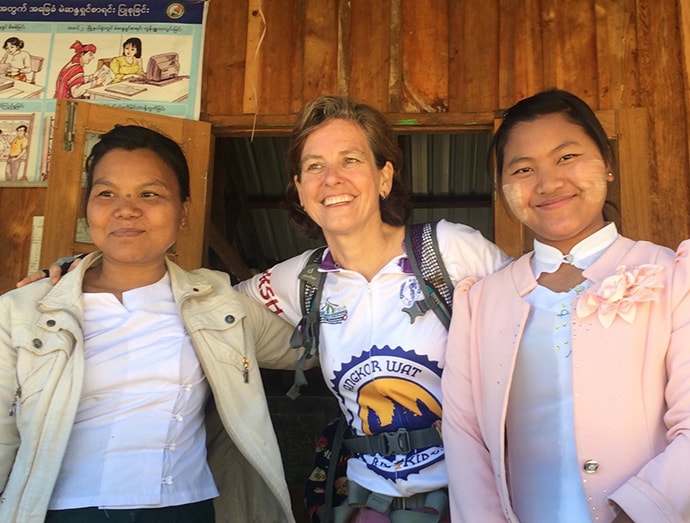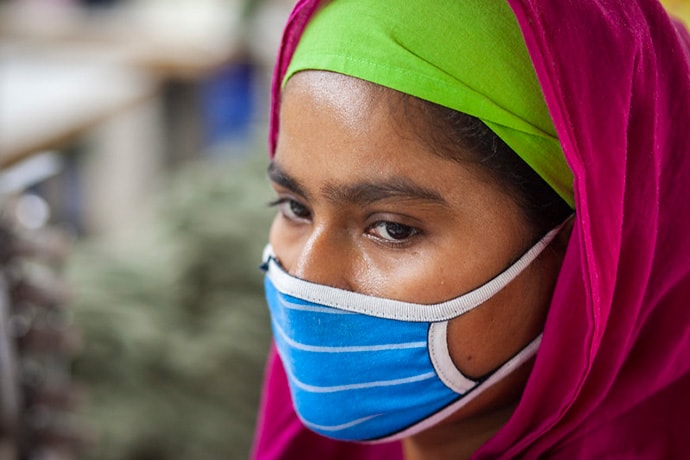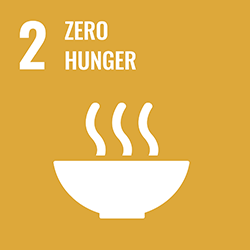2020 Goalmakers Blog
Great Transitions: Doubling Down on the Sustainable Development Goals
The Covid-19 pandemic has exposed the world’s extraordinary fragility and highlighted trenchant societal inequalities. Managing the pandemic has been hard enough and doing so while addressing other urgent stresses – like climate change, discrimination and violence – has added to the difficulty. The challenge is further heightened in the face of what may soon become recurrent interlocking patterns of environmental, economic, and social disruption.
What should be done to move forward? How can the world find a way out of this difficult situation?
These were the questions tackled by participants in 17 Rooms 2020, a yearly convening of leading experts and practitioners brought together by the Brookings Institution and The Rockefeller Foundation to channel ideas and energy into actions for the Sustainable Development Goals (SDGs). A clear consensus from this year’s convening was that the SDGs are more relevant than ever, and should be used as a “North Star” to guide action out of the Covid-19 crisis.
Read more and download the report by the 17 Rooms Secretariat.
SDG17 (Rethinking) Partnerships for the Goals
By Corrina Grace, Partners Asia Social Innovator

Therese Caouette, center, poses with teachers from a village school in Chin State, while on a bike trip with Partners Asia in western Myanmar. A longtime Seattle resident, Caouette plays a critical role in shaping Partners Asia and advocating for trust-based philanthropy. Photo credit: Tim Schottman/Partners Asia.
It could be argued that SDG17 (Partnerships for the Goals) is the most important of the UN’s 17 Sustainable Development Goals. The complex and interdependent nature of the challenges we face in the world will not be solved by any one individual, organization, or government alone. There is not a single solution that can be scaled or a transformative public policy to be implemented that can get us to where we need to be. As the voices of the People’s Climate Movement have been crying out for years: “To change everything, it takes everyone.” Achieving the Global Goals and meeting the ambitious 2030 Sustainable Development Agenda will require strong partnerships and collective actions that bridge across traditional boundaries such as race, religion, class, gender, and geography. It also required recognition that not all partnerships have been created equally.
Tackling SDG10 Means Shifting Power and Profits
By Irit Tamir, Director of Oxfam America’s Private Sector Department

An apparel worker in Dhaka wears a face covering and maintains social distance from other workers as garment factories reopened amid the Covid-19 pandemic. Photo: UN Women/Fahad Abdullah Kaizer via Flickr (CC BY-NC-ND 2.0)
COVID-19 has laid bare the deep inequalities our economic model has fostered and thus is a major threat in achieving the UN Sustainable Development Goals, particularly SDG 10 (reducing inequalities). Business has a role to play in achieving SDG 10—but a recent Oxfam report highlights how big corporations are exacerbating rather than reducing inequality.
Rebuilding and Transitioning to More Equitable Global Systems After COVID-19
By Kristen Dailey, Executive Director of Global Washington
In their annual Goalkeepers Report, Bill and Melinda Gates noted that after decades of progress toward the Sustainable Development Goals, progress has stalled, and we are in fact going backwards on nearly all of the indicators.
We are now in a situation where we need to restart and rebuild systems and solutions to get the SDGs back on track. However, we should not rebuild in a way that takes us back to the status quo. We have an opportunity to transition into something better. Something that is more innovative, cross-sectoral, and most importantly, more equitable.
Zero Hunger – What Would It Look Like and How Do We Get There?
By Mark Ritchie, President of Global Minnesota
 Every year, on October 16th, people around the world take time to observe World Food Day, commemorating the creation by the United Nations of the Food and Agriculture Organization (FAO). This year Global Minnesota organized a day-long virtual symposium under the theme “Countdown to Zero Hunger in 2030.” We focused on forging the new partnerships needed to accelerate our progress on Sustainable Development Goal #2 – Zero Hunger.
Every year, on October 16th, people around the world take time to observe World Food Day, commemorating the creation by the United Nations of the Food and Agriculture Organization (FAO). This year Global Minnesota organized a day-long virtual symposium under the theme “Countdown to Zero Hunger in 2030.” We focused on forging the new partnerships needed to accelerate our progress on Sustainable Development Goal #2 – Zero Hunger.
This happens to be the 75th anniversary year of the UN and the FAO, both launched right after World War II, in 1945. On the 50th anniversary of both of these vital global institutions a coalition of groups, coordinated by the Institute for Agriculture and Trade Policy, gathered the surviving founders of the UN and the FAO to both honor them and to learn as much as we could about their motivations, their hopes and dreams, and how they saw the outcomes after 50 years. We gathered in the original settings – the Opera House in San Francisco and the Chateau in Quebec City, to recreate as best we could the original atmosphere and context. Without exception, the speakers opened and closed their remarks with the reminder that they had seen two World Wars, and a Great Depression that came out of the first and led to the second, so their motivations were simply stated – to prevent and if possible to survive a third world war. The cruelty of nuclear holocaust was visible to all as they gathered to forge a new world order.
